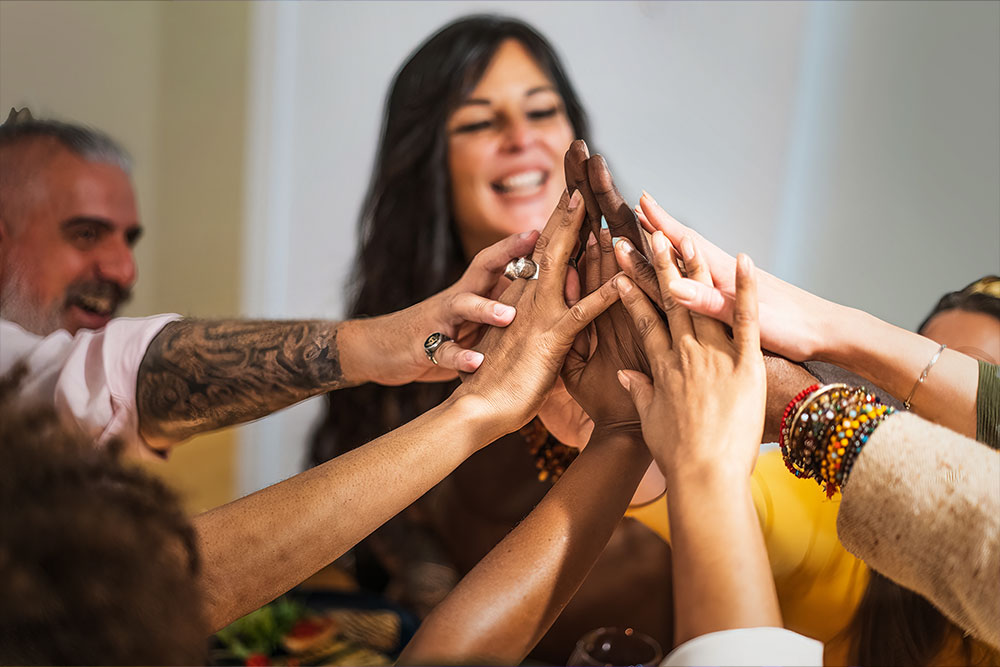Boosting Resilience through Trained Peer Networks

By Brooks Robinson, Ph.D.
Program Director - Grants Specialist
In communities all over the country, there is a serious strain on mental health due to a confluence of factors that include economic hardship, political polarization, physical health challenges (including infectious disease), extreme weather, and gun violence. Very few individuals that could benefit from professional mental healthcare will seek out and receive that care in 2025. Coping with widespread stress and trauma within our community requires a coordinated community response because the number of professional healthcare providers is insufficient to meet the need. Thus, impactful lower intensity interventions (often self-directed and cost effective) and social network-based support are desperately needed.
One of the primary barriers to healing trauma is trauma survivors’ low likelihood of engaging with mental health care. Trauma survivors face substantial barriers to accessing specialized mental health care, including stigma, cost, and limited availability of expertly trained trauma-informed providers. Additionally, long waitlists can negatively impact patient outcomes. Trauma survivors with mental health needs are more likely to experience delays in initial appointments for PTSD treatment. This is a significant problem because longer periods between referral and first visit are associated with poorer outcomes and lower rates of treatment initiation.
Given the concerningly low level of accessing mental health care following trauma, different avenues to care are needed. It is important to note that trauma survivors are most likely to disclose trauma to someone they know well, such as friends and family. Thus, friends and family are positioned to offer a first level of support. However, research indicates that many people feel unequipped to support those who disclose trauma or mental health needs. Furthermore, trauma survivors report that many people to whom they disclose trauma do not seem to know how to respond and that the general public does not understand how trauma can impact survivors. This is precisely why peer-to-peer support programs are vital. These programs provide people with skills to help those in their social networks heal and often supply knowledge of available resources for further care. Peer support has been shown to decrease social isolation, which is common in trauma survivors, and to increase a sense of belonging among trauma survivors. This is particularly important because the perception of failed belongingness has been associated with increased suicide risk, and a PTSD diagnosis is associated with increased acquired suicide risk. Another massive potential benefit of peer support is the impact that coaching can have. Not only are trauma survivors much more likely to engage with a support resource that has been recommended by a trusted individual in their community, but resource effectiveness is significantly boosted when people are coached during utilization.
To boil it down, peers can play a vital role for trauma survivors by providing a first line of support, recommending resources and treatment options, and coaching in order to maximize the impact of support resources. Peer support trainings, often associated with workplace stress, can also be employed in social and familial groups. They are relatively inexpensive and low intensity and thus can have a wide reach relative to professional mental healthcare. The Lyda Hill Institute for Human Resilience offers GRIT (Greater Resilience Information Toolkit) training as a free virtual resource for anyone looking to build peer support skills. It is important for individuals and organizations to realize when the impacts of trauma can be mitigated through peer interactions. However, communities, funders, and policymakers should be aware that mental health programs and resources, while obviously important, can have a diminished impact due to poor visibility, utilization, and lack of connection with other complimentary resources. Building a community network of people with peer-support skills can amplify the impact of existing programs while also acting as a critical direct resource for trauma survivors.